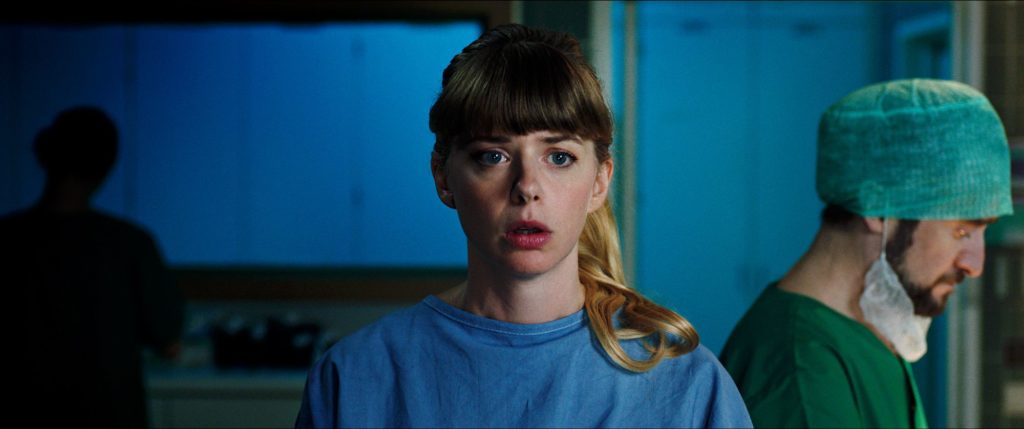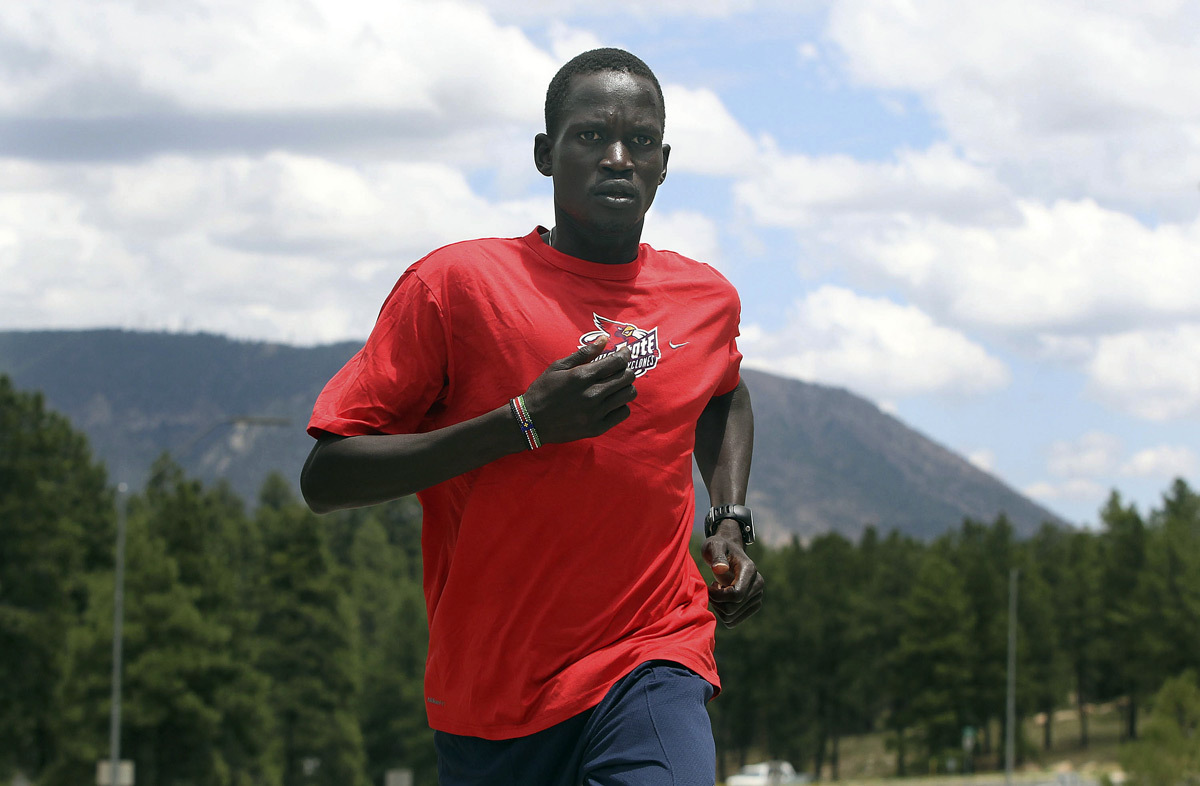Yummy
by Hope Madden
Hey, are you squeamish?
Does Shudder have the movie for you!
It’s hard to do zombies well anymore. Mainly, you have to either come up with an entirely novel concept or hope that the bloody mayhem works in your favor.
In Yummy, the concept is only marginally original, but the bloody mayhem is more than on target. Co-writer/director Lars Damoiseaux assaults your gag reflex with a viscous mess of a horror flick. Blood and entrails, of course, but expect a pretty inspired use of pus, liquid body fat, tendons and other tissues and goos.
It makes for some slick surfaces, I tell you what! Plus some unexpected little monsters keep things interesting and fun.
Set inside a cut-rate Eastern European cosmetic surgery clinic, the film follows a mother, daughter and her boyfriend into a very bad decision. Mom (Annick Christiaens) is after a series of nips and tucks; daughter Alison (Maaike Neuville) wants breast reduction; boyfriend Michael (Bart Hollanders) is just a good dude willing to drive everyone even though he’s afraid of blood.
Here is a ripe premise for horror. Mom is a Cronenberg-esque vehicle for body horror as well as vanity shaming. Alison provides comedic possibilities (no one in the clinic can begin to understand her point of view). Hemophobic Michael offers the clear hero’s arc. (Or he’ll simply die of shock by the gooey second reel.)
And no, it’s not incredibly novel—zombie movies so rarely are. But it’s smart, witty and fun. Damoiseaux accomplishes much with his budget. Practical effects are great, performances are delightful, and nothing beats a little well placed Stooges. (The band, not the knuckleheads.)
Yummy represents Damoiseaux’s feature debut as director and writer, but he’s garnered attention and awards for years with his work in shorts. Award winning co-writer Eveline Hagenbeek (Rokjesdag) channels her affinity for conversational comedy into a script that may follow a familiar structure but delivers a believable, funny edge that the game ensemble takes advantage of.
Their collaboration is no masterpiece, but it is a lot of sloppy fun.














